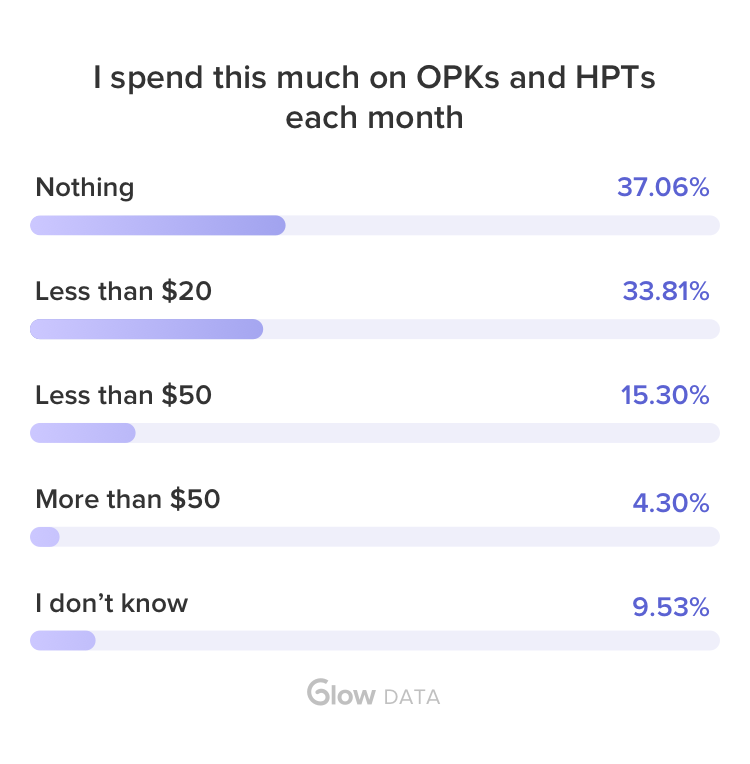Ovulation predictor kits, or OPKs, are tools that help women identify when they are ovulating. Used together with the Glow app, an OPK can pinpoint the ovulation window and help couples maximize their chances of conceiving naturally.
OPKs work by detecting a surge in the luteinizing hormone (LH), which tends to occur roughly 36 hours prior to ovulation. If you have sex just as the surge occurs, then you greatly increase your odds of having sperm present in time to meet the egg and fertilize it.
Here are some the most frequently asked questions about OPKs in the Glow Community.
Should I use an OPK?
Sure. If you can afford the tests, and you do not have a condition such like PCOS that will give you false results, then an OPK is a wonderful tool to help guide your process.
In a Glow Community survey answered by over 6000 women who are trying to conceive, over 21% said they religiously used OPKs; 32% reported using OPKs occasionally.

How does an OPK work?
An OPK works just like a pregnancy test (it looks like one, too!). In other words, you have to pee on it. And just like a pregnancy test, one line is the control line and the second line shows whether you are ovulating or not. There are also fancy digital tests that may show you a flashy smiley face or just the word “Ovulating.” Always be sure to read the instructions from the manufacturer carefully!
When do I pee on an OPK?
Again, follow the instructions given by the manufacturer. But for many people, the best time is late morning or early afternoon. Unlike a pregnancy test, it isn’t necessary to take your ovulation test in the morning. However, you should test at approximately the same time each day. Drinking excessive amounts of liquid can dilute the H in your urine, so it’s best to reduce your liquid intake for two hours before testing.
How much does it cost?
A cycle of OPKs can cost anywhere from $10 to $40, depending on the brand. Sometimes the best deals can be found online. Always check for a manufacturer’s coupon!
In this Glow Community survey, taken by over 59,000 women who are actively trying to conceive, the vast majority of respondents said they spent less than $50 on both OPKs and home pregnancy tests (HPTs) per month.

When does it not work?
Unfortunately, there are actually quite a few reasons why an OPK might not work correctly.
- OPKs won’t work when certain fertility drugs are present in the body, such as the hormone hCG.
- OPK’s might not work for those over 40 years old. Some women over 40 have increased levels of LH in their systems, and that can throw off the test.
- OPK’s might not work for those with PCOS, since women with PCOS often have high LH levels to begin with.
Maybe this is why 20% of survey respondents in the Glow Community who are actively trying to conceive deemed OPKs confusing. Only 15% felt that they were essential!

My test is showing a flashy smiley face – now what?
If your OPK tells you that you have experienced your LH surge, then it is time to get busy. The next two days will be your most fertile!
My OPK test NEVER showed a flashy smiley face – now what?
Yeah, that happens sometimes. It could be because you did not ovulate this cycle. Or it could be because you missed your surge (it happened in the afternoon and you tested in the morning.) Or you ovulated early, or you ovulated late. There could be any number of reasons.
This is why is it so important to combine OPKs with other fertile symptoms – did you have egg white cervical mucus? Did your basal body temperature spike? What is the state of your cervix? OPKs are fine, but they are just one of many indicators of your ovulation.
How do I know which OPK test to buy?
Glow has several OPKs rated by our community. Read the reviews to see which brand makes sense for you!




